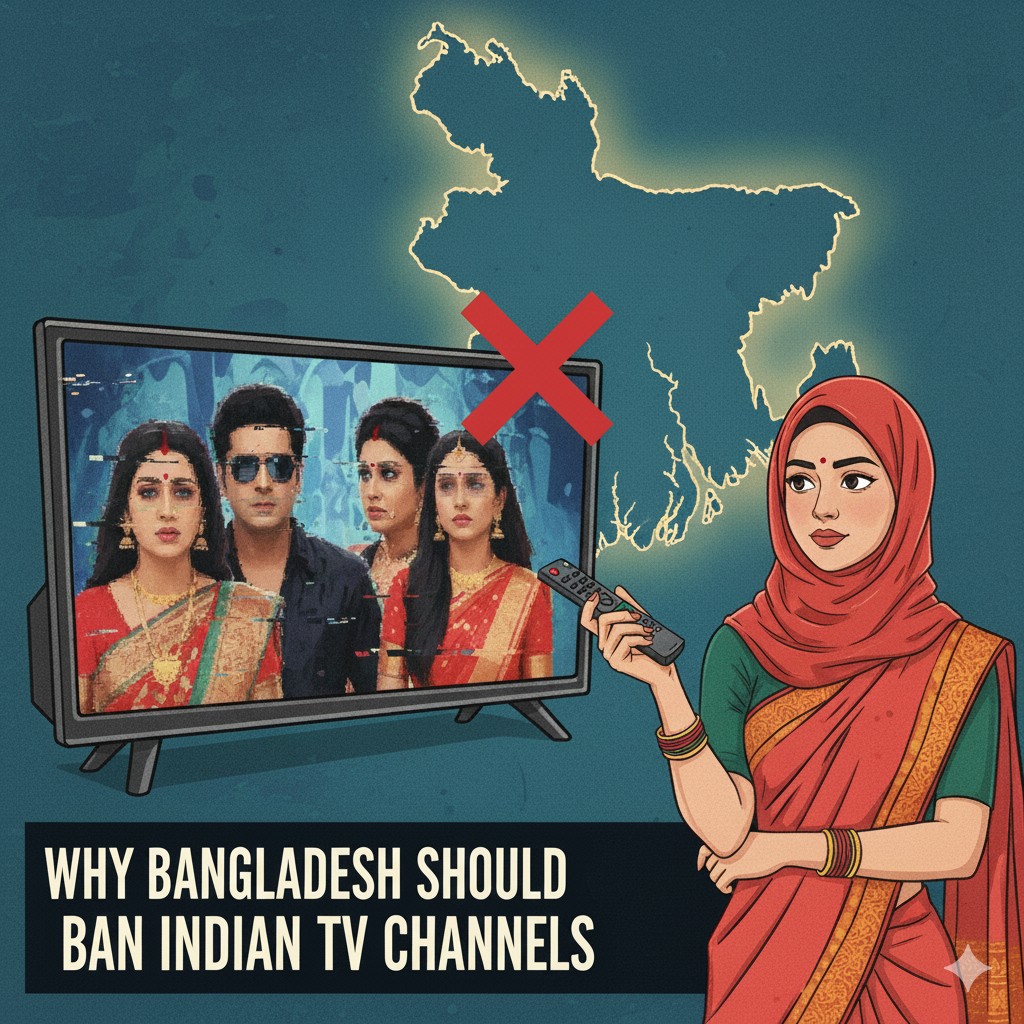This content is restricted to site members. If you are an existing user, please log in. New users may register below.
Why Bangladesh Should Ban Indian TV Channels

Reading Time: 3 minutes For decades, Bangladesh has been subjected to a one-sided information flow from across the western border. Indian television channels are broadcast freely in Bangladesh, shaping perceptions, tastes, and even political discourse. Yet, Bangladesh’s own media – whether television networks or YouTube platforms – have long faced strict bans and barriers in India. This asymmetry is not accidental; it is deliberate. It reflects India’s deep-rooted policy of controlling the narrative while denying Bangladesh reciprocal access to its own market. The time has come for Bangladesh to assert its sovereignty in the information space and ban the broadcast of Indian TV channels. Such a move is not only justified but also necessary to protect Bangladesh’s national interest. Firstly, reciprocity is the foundation of fair bilateral relations. India has enforced harsh restrictions against Bangladeshi television and digital platforms, well before the collapse of the Hasina regime. These bans remain

